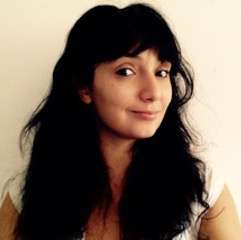At first glance, it seems an incongruous marriage, but Philip Glass’s encounter with the work of Jean Cocteau makes a level of sense. In part, that's because of their shared esteem for Les Six (and especially Darius Milhaud). But above all, there's an ethical and aesthetic affinity that shines through Orphée (1993), La Belle et la Bête (1995) and most notably Les Enfants Terribles (1996). Glass is interested in the shape-shifting author, an artist somewhat underestimated within French borders but appreciated abroad, and not only because he summons the polytonal spectrum of music reputed to be extinct. He also immerses himself in Cocteau because of a similar taste for crafted minimalism, the tragic and the timeless; he might have chosen for himself Cocteau's maxim, stated among so many others in Le Coq et l’Arlequin: “art is science in the flesh”.
Science, or at least abstraction, is much at issue on the stage of the Eiffel Art Studios. This new venue, opened in Budapest in 2020, occupies a portion of a vast disused train station that has been superbly refurbished into a modular complex. Ildikó Tihanyi’s immaculate scenery unfolds like geometric patterns in myriad rotations. As a counterpoint to the overwhelming whiteness and monumentality of the venue, Andrea Kovács’ costumes catch the eye, at the risk of becoming garish when worn by the singers.
The dancers, embodying here the impulses of the action and the characters, are graced with beautiful shades of grey. Their movements gracefully meld into the music, chanted brilliantly by three pianists – Andrea Fernandes, Sámuel Tóth, Bálint Zsoldos – under the mature direction of the young Péter Dobszay. The score is breathtakingly clear and simple to the ear, but arduous to perform and unforgiving of any approximation. While the ensemble scenes suffered from a number of musical and choreographic lapses of the sort that are not untypical on opening nights, the more intimate moments, particularly the duets, are impressive.
Choreographer-director Dóra Barta skillfully combines the gestures of the entire cast; the tumult of the singing is written all over the dancers’ bodies, while the singers’ movements remain more restrained. The bickering of brother and sister, vocally violent, find a tender and playful echo in the pas-de-deux. Each singer is doubled by a dancer; in the role of Elisabeth, Inés Furuhashi-Huber stands out in a ballet cast of great quality.
Vocally embodied by Szilvia Rálik, Elisabeth perhaps lacks the naivety and lightness required for the role of a juvenile lead during the first half of the piece. However, her razor-sharp high notes, coming to us effortlessly from the back of the stage perched on an orbiting carrier, remind us why such an experienced and a rich voice has been chosen, at the risk of detaching itself from the softer timbres of her younger counterparts – who will, in turn, display admirable qualities of articulation (even in Glass’ sometimes difficult French) and interpretation. Lőrinc Kósa’s Paul is as sheepish and boorish scenically as he is solidly balanced vocally. In the double role of Dargelos and Agathe, revealing of Paul’s – and Cocteau’s – repressed homosexuality, Zsófia Kálnay lacks some assurance but reveals a very beautiful timbre. Eternally left out of the incestuous duet, Botond Ódor’s Gérard has nothing to envy in the many qualities of his colleagues, his ample and full tenor tessitura considerably enriching each interaction with them.
The whole work unfolds at an infernal tempo: the hour and a half of the show passes by in an instant. It ends with the crash that characterises great tragedies.
Suzanne's trip to Budapest was funded by Hungarian State Opera.
Translated from French by the author and David Karlin.




